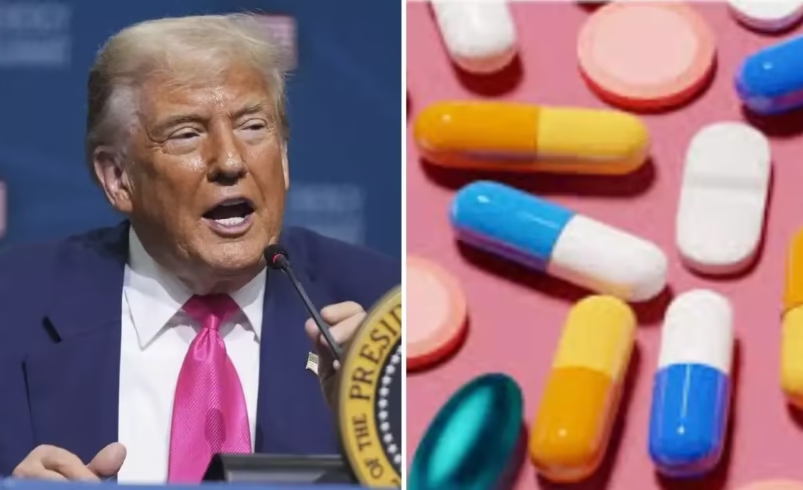Trump’s 100% drug tariff plan raises concerns for Indian pharma
- September 27, 2025
- 0

A sweeping new trade measure announced by US President Donald Trump has set the pharmaceutical industry on edge. Beginning in October 2025, all imported branded and patented medicines will face a 100% tariff, a move framed as an effort to strengthen domestic drug manufacturing. While generic medicines from India appear to be shielded from the immediate impact, analysts caution that the long-term implications could be far-reaching if the scope of tariffs widens.
The announced policy specifically applies to branded and patented pharmaceuticals brought into the United States. By doubling the cost of such imports through tariffs, the administration aims to encourage greater production within American borders. Industry observers note that this approach could reshape global supply chains and alter pricing dynamics in one of the world’s largest healthcare markets.
Indian pharmaceutical companies, which are among the leading suppliers of generic drugs worldwide, have not been directly targeted by this measure. Since the tariffs apply only to branded and patented products, most generic exports are expected to continue without disruption in the near term. This provides some relief for India’s drug makers, who rely heavily on access to the US market for revenue growth.
Despite being spared at first, concerns remain within the industry about whether future policy changes could extend tariffs to more sophisticated categories of generics. Complex generics—medicines that require advanced manufacturing processes or specialized delivery systems—represent a growing segment of India’s pharmaceutical exports. Any expansion of tariff coverage into this area could significantly affect competitiveness and profitability for Indian firms.
Among Indian companies, Sun Pharma is seen as particularly vulnerable under this new framework due to its substantial portfolio of branded products sold in the United States. Analysts suggest that while traditional generic producers may avoid immediate disruption, companies with branded offerings could face higher risks if tariffs reshape market dynamics or consumer demand patterns over time.
The announcement has sparked debate across the global pharmaceutical sector about how such a steep tariff might influence innovation, pricing strategies, and patient access to critical medications. While some see it as an opportunity for US-based manufacturers to expand capacity, others warn that higher costs could filter down to consumers and healthcare systems already under financial strain.
The decision to impose a 100% tariff on imported branded and patented drugs marks a significant shift in US trade and healthcare policy. For now, Indian generic manufacturers appear insulated from direct impact, but uncertainty looms over whether future measures might capture more categories of medicines. With major players like Sun Pharma exposed through their branded portfolios, both Indian exporters and global stakeholders will be watching closely as implementation approaches in October 2025. The outcome could redefine how pharmaceuticals are produced, priced, and distributed across international markets in years ahead.